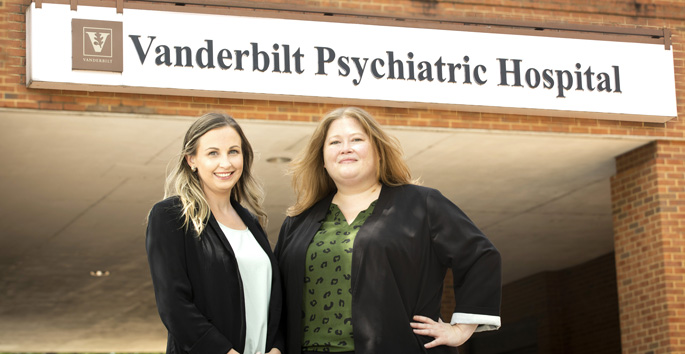
Vanderbilt Psychiatric Hospital (VPH) has launched a new social work fellowship which will prepare master’s degree-level graduates for social work in the behavioral health field.
The two-year program will provide students with clinical experience, supervision and training focused on evidence-informed interventions, says Anne O’Halloran, LCSW, senior director of Social Work and Therapeutic Services at VPH. The program also gives participants a strong knowledge of ethics, policy, legal considerations and best practices.
“It has been incredibly rewarding to develop and launch this innovative training initiative,” O’Halloran said.
“We are rapidly expanding social work roles in behavioral health, and we recognize the need to increase our clinically prepared workforce to meet the demand for behavioral health services. We identified an opportunity to design a fellowship program to provide training and build on behavioral health competencies that prepares licensed master social workers for independent clinical licensure.”
The fellowship program emphasizes a systematic study of the psychological forces underlying human behavior, feelings and emotions and how they relate to a patient’s experiences. The program combines evidence-based treatment approaches with 10 hours of training in interventions each week, during which the fellows can advance their techniques as they rotate through inpatient and outpatient programs at VPH.
The two-year fellowship program is aligned with state licensing board requirements and best practice standards within the behavioral health field.
As the program grows, O’Halloran and Amy Hulings, LCSW, fellowship team lead, plan to add other offerings to expand behavioral health competencies for the entire Vanderbilt community.
For now, the program is starting off its pilot year strong with two fellows with plans to expand based on program evaluation outcomes.
The program operations include recruitment strategy, program evaluation, a competitive application process, training curriculum, clinical rotations across levels of care, clinical supervision, and career development coaching for the fellows.















